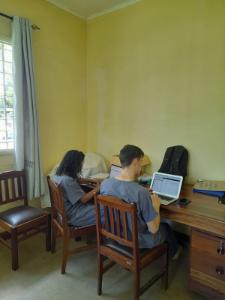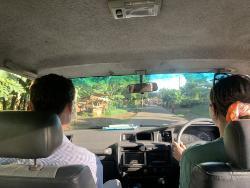News & Events
Kai tells us about his time with TraPCAf

"Could you tell us a bit about your project within TraPCAf?"
The title of my project with TraPCAf was ‘The motor profile of patients with idiopathic Parkinson’s disease in the Hai district of northern Tanzania’. The aim of this project was to investigate the motor characteristics and level of disability amongst people with idiopathic Parkinson’s disease (PD) in the Hai district, as there is limited data on PD in sub-Saharan Africa, including Tanzania.
This required a multi-phase recruitment in both the community and hospital clinics to identify those with PD in the district. Then, quantitative data was collected on the motor symptoms and level of dependence of participating individuals using previously validated questionnaires and examinations.
The project took approximately 1 year in total and my contribution lasted for 3 months. We found that motor symptoms were severe amongst the cohort and that most participants were either moderately or severely disabled at the time of diagnosis.
"What were your favourite parts of the project?"
This opportunity was both challenging and rewarding. Completing the project allowed me to gain an insight into the practicalities of research for the first time, as well as the opportunity to lead and enhance new skills that I have had little chance to practice previously - this was one of my favourite aspects of the work.
Another aspect of the project that I particularly enjoyed was the opportunity to become accustomed to another culture for an extended period, which helped with the nuances of the project and understanding patients, relatives, and local communities.
"Did you learn any important lessons from your time spent with the TraPCaf team?"
I learned the importance and practice of thorough documentation and coordination to successfully run a large-scale project, particularly due to the multitude of roles and responsibilities within a research team. I also learned that difficulties with availability and resources are common in global health research and that some days may not go exactly to plan, but adapting to these challenges is an important skill that you will gain.
My advice to other students who are joining a research project for the first time would be to ensure they understand the timeline of the project, what has already been completed and is yet to be completed, and become familiar with the resources that are being used to collect and document the data. This will allow your contribution to the research to be purposeful and focused. Once you understand this and have been involved in running the project, I advocate that you suggest any changes that you think would be beneficial from your experience!
Kai Harrington, Masters Research student at Newcastle University
Last modified: Tue, 10 Sep 2024 11:35:13 BST
